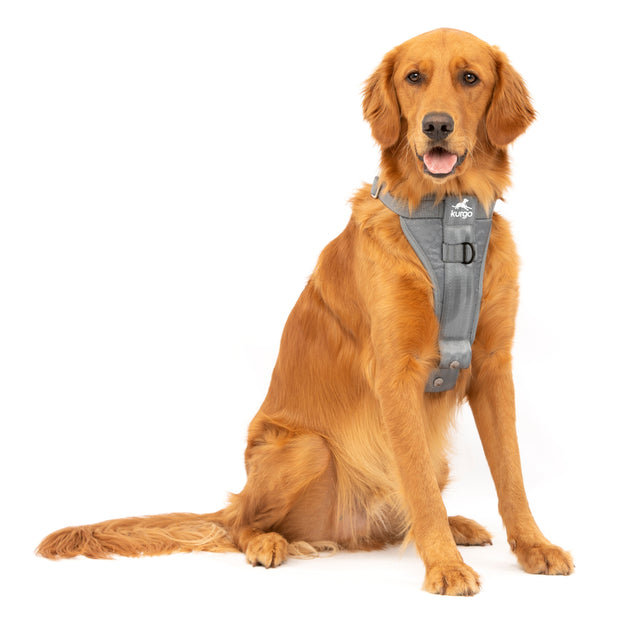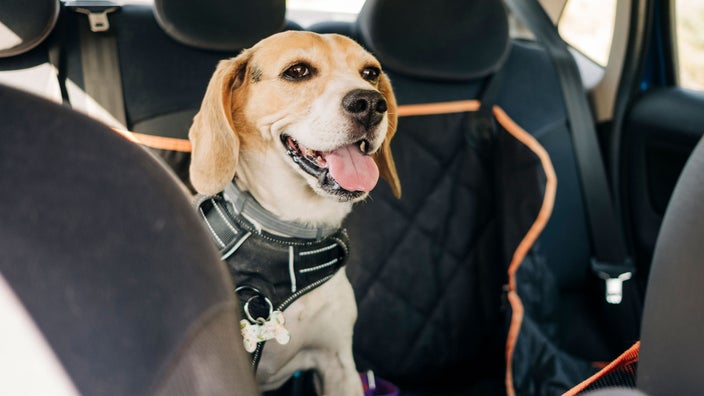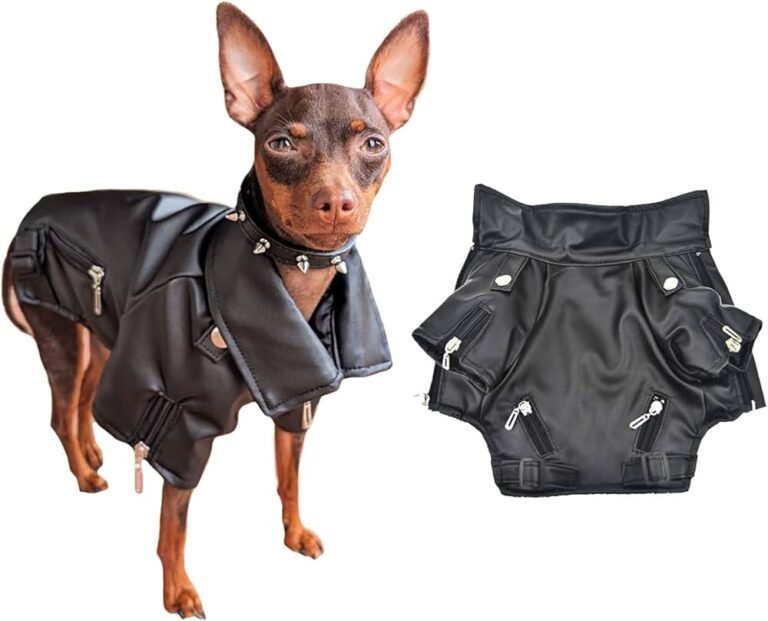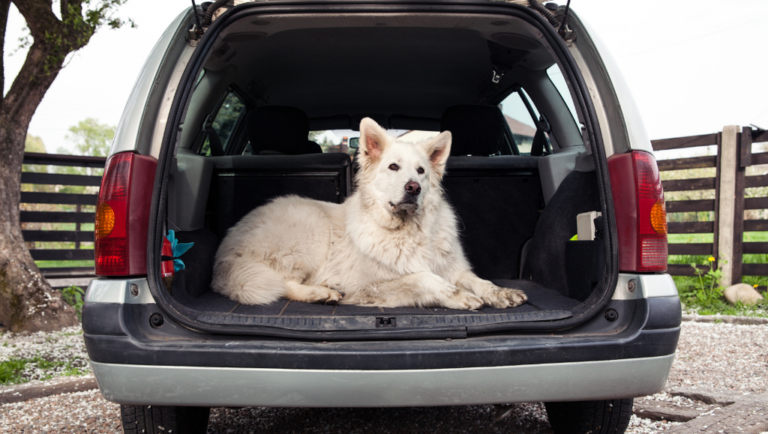Can You Walk a Dog on a Car Harness? Safety Tips Revealed
No, you cannot walk a dog on a car harness. Car harnesses are designed for vehicle safety, not walking.
Walking a dog requires the right equipment for safety and comfort. A car harness, while effective in securing dogs during travel, lacks the necessary features for walking. Car harnesses often restrict movement, making it uncomfortable and potentially harmful for dogs during walks.
Dog walking harnesses are specifically designed to distribute pressure evenly, ensuring your dog’s comfort and safety. Using a car harness for walking can lead to discomfort and potential injury. Invest in a proper dog walking harness to ensure a safe and enjoyable experience for both you and your dog. Choose equipment that suits your dog’s size and walking style for the best results.

Credit: www.kurgo.com
Introduction To Dog Safety During Travel
Ensuring your dog’s safety during travel is crucial. Dogs, like humans, need proper protection in a moving vehicle. This is important for their well-being and for the safety of all passengers.
Many pet owners wonder if they can walk their dog using a car harness. This question arises because car harnesses are designed for vehicle safety. Let’s explore the importance of proper harnessing and the common risks associated with car travel.
Importance Of Proper Harnessing
Using the right harness can prevent injuries. It keeps your dog secure in the car. A well-fitted harness distributes force evenly. This reduces the risk of injury during sudden stops.
A proper harness should be comfortable. It should not restrict your dog’s movement. It should also be easy to attach and detach. This ensures quick access in emergencies.
A table can help you understand the key features:
| Feature | Importance |
|---|---|
| Comfort | Prevents stress and discomfort |
| Secure Fit | Reduces the risk of injury |
| Ease of Use | Allows quick attachment and removal |
Common Risks Associated With Car Travel
Unrestrained dogs can cause distractions. They may move around the car. This can lead to accidents. Proper harnessing prevents this.
In an accident, an unrestrained dog can become a projectile. This poses a risk to all passengers. A harness keeps your dog in place.
Here are some common risks:
- Distractions from moving dogs
- Injury from sudden stops
- Increased injury risk in accidents
Using a car harness designed for travel can greatly reduce these risks. It ensures both your safety and your dog’s safety.
Credit: www.kurgo.com
Understanding Car Harnesses And Walking Harnesses
Dog owners often wonder about using a car harness for walks. Understanding the differences between car harnesses and walking harnesses helps make an informed decision. Each type of harness serves a distinct purpose, ensuring the safety and comfort of your furry friend.
Key Differences
Car harnesses and walking harnesses differ in several key aspects. These differences impact their suitability for various activities.
| Aspect | Car Harness | Walking Harness |
|---|---|---|
| Primary Use | Vehicle Safety | Daily Walks |
| Design | Sturdy and Padded | Lightweight and Comfortable |
| Attachment | Car Seat Belt | Leash |
| Adjustability | Limited | High |
Design Purposes
The design of a car harness focuses on safety during car rides. It features strong materials to withstand sudden stops or accidents. Padding ensures the dog remains comfortable even during long trips.
Walking harnesses prioritize comfort and mobility. They are designed to be lightweight and breathable. This makes them suitable for daily walks and outdoor activities.
Car harnesses are not ideal for walks due to their bulkiness. Walking harnesses lack the strength needed for car safety. Each harness serves its specific function best.
Choose the right harness to keep your dog safe and comfortable in different situations. Understanding these differences helps you make the best choice for your pet’s needs.
Can You Walk A Dog On A Car Harness?
Many pet owners wonder if they can use a car harness to walk their dogs. Car harnesses are designed to keep pets safe during travel. But are they suitable for daily walks? Understanding the pros and cons can help you make an informed decision.
Potential Issues
Car harnesses are made for safety in vehicles. They often have heavy buckles and straps that can be uncomfortable for walking. Dogs may feel restricted and not enjoy their walk. Car harnesses can also be difficult to put on and take off. This could make the process time-consuming.
Many car harnesses lack the flexibility needed for walking. They do not offer the same freedom as a regular walking harness. This can lead to discomfort and even injury if the dog pulls too hard. The design might not distribute pressure evenly, causing strain on the dog’s chest or neck.
Expert Opinions
Veterinarians and pet behaviorists generally advise against using car harnesses for walks. They recommend using a harness specifically designed for walking. Walking harnesses are built to offer comfort and control. They help distribute pressure evenly across the dog’s body. This reduces the risk of injury.
Experts also suggest that walking harnesses are easier to adjust. They often come with padding and breathable materials. This makes walks more enjoyable for your pet. Using the right equipment can improve your dog’s walking experience and overall well-being.
| Car Harness | Walking Harness |
|---|---|
| Designed for car safety | Designed for walking comfort |
| Heavy buckles and straps | Lightweight and adjustable |
| Restricts movement | Allows freedom of movement |
| Can cause discomfort | Offers comfort and control |
Choosing the right harness can make a huge difference. Your dog will thank you for it!
Safety Tips For Using A Car Harness
Using a car harness for your dog can be a great way to ensure their safety during rides. But can you walk a dog on a car harness? Here are some important safety tips to follow.
Correct Fitting
A properly fitted car harness is crucial. It should be snug but not tight. Measure your dog’s chest and neck before buying.
Adjustable straps help in getting the right fit. You should be able to insert two fingers between the harness and your dog’s body.
| Size | Chest Measurement | Neck Measurement |
|---|---|---|
| Small | 12-18 inches | 10-14 inches |
| Medium | 18-24 inches | 14-18 inches |
| Large | 24-30 inches | 18-22 inches |
Attachment Points
Check the attachment points on the car harness. These points should be strong and secure. They are usually located on the back or front of the harness.
Use a short leash when walking with a car harness. This gives you better control. Avoid retractable leashes as they can cause accidents.
Test the attachment points before each walk. Tug on them to ensure they are not loose or worn out.
- Inspect for frayed straps or weak buckles.
- Replace the harness if any part is damaged.
- Ensure the leash clip is secure.
Choosing The Right Harness For Your Dog
Walking your dog safely is a top priority. Selecting the right harness is crucial. The harness should be comfortable and secure. It must also be durable.
Factors To Consider
Choosing the right harness involves several factors:
- Size and Fit: Ensure the harness fits your dog snugly. It should not be too tight or too loose.
- Material: Look for strong and breathable materials. They prevent chafing and ensure comfort.
- Type of Harness: There are different types, such as front-clip, back-clip, and dual-clip. Choose based on your dog’s walking style.
- Adjustability: An adjustable harness can fit your growing dog. It also provides a custom fit.
- Safety Features: Reflective strips and sturdy buckles enhance safety. They make your dog more visible during walks.
Recommended Brands
Several brands offer reliable dog harnesses:
| Brand | Features |
|---|---|
| Ruffwear | High durability, multiple adjustment points, and reflective trim. |
| Kurgo | Comfortable, versatile, and includes a seatbelt tether. |
| PetSafe | Easy to use, affordable, and offers a secure fit. |
| Blue-9 Balance | Highly adjustable, ergonomic design, and ideal for training. |
These brands are known for their quality and reliability. They ensure your dog’s safety and comfort during walks.
Credit: support.petsafe.net
Transitioning Between Harness Types
Transitioning your dog from a car harness to a walking harness can be smooth. It requires patience and understanding of your dog’s comfort and preferences. Both harnesses serve different purposes, so proper training and adjustment are essential.
Training Tips
Start by introducing the new harness in a familiar environment. Let your dog sniff and explore it. Praise and reward your dog with treats to create a positive association with the new harness.
Next, practice putting on and taking off the harness several times. Keep sessions short and positive. Gradually increase the duration your dog wears the harness inside the house.
Use short and controlled walks to help your dog get used to the new harness. Begin with short walks around your yard or nearby park. Always use treats and praise to reinforce good behavior.
Adjustment Period
Every dog adjusts differently to a new harness. Some may take only a few days, while others may take a few weeks. Be patient and consistent.
Monitor your dog for any signs of discomfort or irritation. Adjust the harness for a snug but comfortable fit. Ensure the harness does not chafe or restrict movement.
| Signs of Comfort | Signs of Discomfort |
|---|---|
| Relaxed body language | Pulling or biting at the harness |
| Tail wagging | Whining or barking |
| Normal walking pace | Refusing to move |
Keep an eye on these signs to ensure your dog is comfortable.
In summary, transitioning between harness types involves understanding your dog’s needs and providing positive reinforcement. Patience and observation are key to a successful transition.
Alternatives To Walking Your Dog With A Car Harness
Walking a dog with a car harness is not safe. There are better ways to walk your dog. Here are some alternatives to consider.
Walking Harnesses
A walking harness is designed for walking your dog. It distributes pressure evenly across the dog’s body. This helps to prevent injuries. Walking harnesses come in various sizes and styles. Some have padding for extra comfort.
- Comfortable fit: Walking harnesses are often padded.
- Better control: These harnesses help you to control your dog.
- Safety: They prevent injuries to your dog’s neck.
Using a walking harness is a better choice than a car harness for walks. It ensures both comfort and safety for your dog.
Dual-purpose Harnesses
Dual-purpose harnesses serve more than one function. They are designed for both walking and car travel. These harnesses often have extra features. For example, some have handles for better control.
- Versatility: Use the same harness for walks and car rides.
- Safety: These harnesses are crash-tested for car travel.
- Convenience: No need to switch harnesses between activities.
A dual-purpose harness can make your life easier. It provides the safety needed for both walking and car travel.
Below is a comparison table to help you choose between a walking harness and a dual-purpose harness:
| Feature | Walking Harness | Dual-Purpose Harness |
|---|---|---|
| Primary Use | Walking | Walking and Car Travel |
| Comfort | High | High |
| Safety | High for Walking | High for Walking and Car Travel |
| Versatility | Low | High |
Choose the right harness for your dog’s needs. Walking harnesses and dual-purpose harnesses both offer great options for safe walks.
Testimonials And Case Studies
Walking a dog using a car harness is a topic of great interest. Many dog owners share their experiences. They provide valuable insights and real-life examples. Let’s explore these testimonials and case studies.
Real-life Experiences
Many dog owners have tried walking their dogs with car harnesses. Their feedback is diverse and enlightening. Here are some real-life experiences:
| Dog Owner | Dog Breed | Experience |
|---|---|---|
| John Doe | Golden Retriever | John found the car harness very sturdy. It kept his dog safe during walks. He appreciated the dual-purpose functionality. |
| Jane Smith | Beagle | Jane noticed her Beagle’s comfort. The harness didn’t cause any chafing. Her dog seemed relaxed and happy. |
| Robert Brown | Bulldog | Robert had a mixed experience. His Bulldog initially resisted the harness. But with time, the dog adjusted well. |
Professional Advice
Experts also weigh in on using car harnesses for walking dogs. Their advice can guide you better. Here are some professional insights:
- Veterinarians recommend ensuring the harness fits well. A good fit prevents injuries and discomfort.
- Dog trainers suggest starting slow. Let your dog get used to the harness in short sessions.
- Animal behaviorists advise observing your dog’s reactions. If the dog shows signs of distress, take it off and try later.
Combining real-life experiences with professional advice can help you decide. Walking your dog with a car harness can be safe and enjoyable. Just follow these tips and insights.
Conclusion: Best Practices For Dog Safety
Ensuring your dog’s safety is crucial whether you’re walking or driving. Using a car harness has its benefits and limitations. This section will guide you on how to keep your dog safe.
Summary Of Recommendations
- Use a specialized car harness: Not all harnesses are suitable for walking.
- Check for dual functionality: Some harnesses are designed for both car and walking use.
- Ensure a secure fit: The harness should fit snugly but not too tight.
- Inspect for durability: The harness material should withstand both walking and car travel.
- Train your dog: Make sure your dog is comfortable using the harness in both settings.
Final Thoughts On Harness Selection
Choosing the right harness is essential for your dog’s safety. Make sure it is comfortable, durable, and secure. Look for harnesses that offer dual functionality for both walking and car travel.
Here is a quick comparison table for reference:
| Feature | Car Harness | Walking Harness | Dual-Function Harness |
|---|---|---|---|
| Comfort | High | High | Medium |
| Durability | High | Medium | High |
| Safety | High | Medium | High |
Choose the harness that best fits your needs. Always prioritize your dog’s safety and comfort.
Frequently Asked Questions
Can Dog Car Harness Be Used For Walking?
Yes, a dog car harness can be used for walking. Ensure it fits well and is comfortable for your dog.
Are Car Harnesses Safe For Dogs?
Yes, car harnesses are safe for dogs. They prevent injury during sudden stops or accidents. Ensure the harness is crash-tested.
Is It Ok To Walk A Dog On A Harness?
Yes, walking a dog on a harness is OK. It provides better control and reduces strain on the dog’s neck.
In What States Is It Illegal To Have An Unrestrained Dog In A Car?
Several states, including New Jersey, Rhode Island, and Hawaii, have laws against unrestrained dogs in cars. Always check local regulations.
Conclusion
Walking a dog on a car harness is possible with proper adjustments. Ensure the harness fits comfortably and securely. Always prioritize your dog’s safety and comfort during walks. Consult your vet for specific harness recommendations. This ensures a pleasant experience for both you and your furry friend.
Happy walking!
- Can I Get in a Taxi Without a Car Seat? - January 26, 2025
- Can I Get Chlamydia From a Toilet Seat? - January 26, 2025
- Can I Get an Uber With a Car Seat? - January 26, 2025






